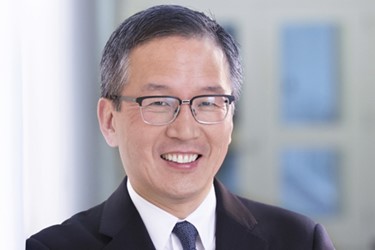Why Top Researchers And Physicians Enter The World Of Biopharma R&D

By Rob Wright, Chief Editor, Life Science Leader
Follow Me On Twitter @RfwrightLSL

It’s been 18 years since David Chang, M.D., Ph.D., left academia to join Amgen. Now the cofounder and CEO of one of the hottest biopharmaceutical companies (i.e., Allogene Therapeutics, which you will be able to read about in Life Science Leader’s Feb. 2020 issue), he still remembers getting flooded with emails, many expressing surprise at his decision. But Chang knew he was ready to do something different. “As a clinician and scientist, my decision was strongly influenced by the notion of only seeing one patient at a time,” he shares. “Yes. You build a relationship with patients, and sometimes you are actually able to really help patients.” But as Chang was practicing hematology/oncology, many of those outcomes weren’t necessarily positive.
Like many of his physician colleagues who enter the world of biopharmaceuticals, he saw the lure of successful drug development and possible commercialization. “When that happens, now you can help thousands, and that was something I really wanted.” From there, he never looked back.
Over the years, I’ve interviewed a number of physicians turned biopharmaceutical executives who have expressed similar sentiment. For example, in 2011 I interviewed Steve Ryder, M.D., then president of Astellas Pharma Global Development. Ryder practiced medicine for a short period following the completion of his medical training, but it was when he became a lab director in the early 1980s where he was able to envision the “multiplicative impact” he could have on patients via the development of new and important medicines. But being a physician did not make him an expert in the field of pharmaceutical R&D. To be successful, he needed to learn clinical pharmacology, an important aspect of the drug development business. Ryder credits two mentors for helping him understand and learn this discipline: David Shand, a former development head at Ayerst Laboratories (a former division of American Home Products); and, Dilip Mehta, former U.S. clinical and regulatory head of Pfizer R&D. It must have worked, as Ryder has been mentioned as being, “one of the best drug developers,” by others considered expert in the field.
Here is a sampling of other physicians who, like Chang, opted to pursue careers in biopharma.
- David Meeker, M.D., was director of the Pulmonary Critical Care Fellowship at the Cleveland Clinic and an assistant professor of medicine at Ohio State University before joining Genzyme in 1994.
- Tadataka (Tachi) Yamada, M.D., spent 13 years at the University of Michigan in Ann Arbor as chief of the division of gastroenterology and internal medicine department chair before taking a position with SmithKline Beecham before becoming GSK.
- Ron Cohen, M.D., practiced medicine for five years before going on to found Acorda Therapeutics, for which he presently serves as president and CEO.
In fact, four Life Science Leader cover features from 2019 just happened to involve physicians turned biopharma execs (i.e., Helen Torley, M.B. Ch.B., M.R.C.P., president and CEO of Halozyme Therapeutics; John Leonard, M.D., president and CEO of Intellia Therapeutics; Robert Hariri, M.D., Ph.D., founder and CEO of Celularity; and Mikael Dolsten, M.D., Ph.D., Pfizer’s chief scientific officer and president, worldwide research, development and medical [WRDM]). But here’s the thing. While many biopharmaceutical executives interviewed by Life Science Leader have extensive medical training, others hail from disciplines that have little or nothing to do with patients (e.g., accounting, business, consulting, engineering, manufacturing). And yet, despite the negative press persistently surrounding the biopharmaceutical industry, it has been our experience that most executives we interview, physicians or otherwise, are incredibly driven to make a difference — for patients. Don’t miss out on learning all their stories by becoming a subscriber to Life Science Leader today, which you can do for free here.
